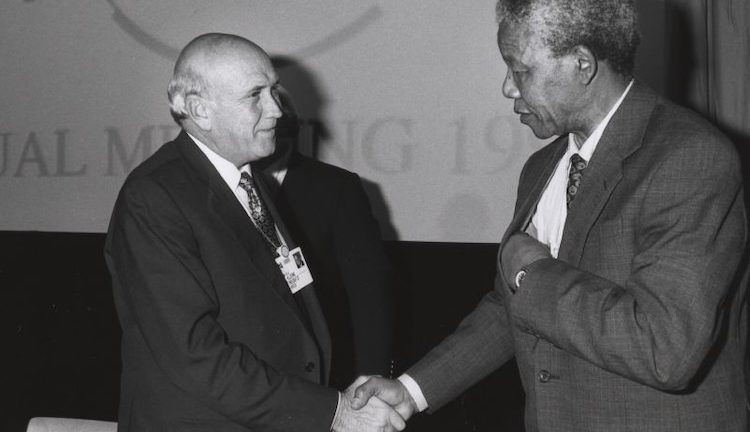By Lisa Vives, Global Information Network
NEW YORK | 29 April 2024 (IDN) — South Africans marked on 27 April the 30th anniversary of a momentous vote, when millions of Black South Africans, young and old, brought apartheid to a close.
It was the first all-race election, and the previously banned African National Congress won overwhelmingly. Its leader, Nelson Mandela, would become the country’s first Black president, four years after he was released from prison.
Preparations for the 1994 election began four years earlier when F.W. de Klerk, the last apartheid-era president, succumbing to international pressure, announced that the ANC and other anti-apartheid parties would be unbanned.
South Africa was still on a knife-edge in the months and weeks before the election because of ongoing political violence, but the vote—held over four days between 26 and 29 April to accommodate the large numbers who turned out—went ahead successfully.
A country that had been shunned and sanctioned by the international community for decades because of apartheid emerged as a fully-fledged democracy.
Nearly 20 million South Africans of all races voted, compared with just 3 million white people in the last general election under apartheid in 1989.
The ANC has been in government ever since 1994 and while it is still respected for its central role in freeing South Africans, it is no longer celebrated in the same way as it was in the hope-filled aftermath of that election.
Deep socio-economic problems
South Africa in 2024 has deep socio-economic problems, none more jarring than the widespread and severe poverty that still overwhelmingly affects the Black majority. The official unemployment rate is 32%, the highest in the world, while it’s more than 60% for young people aged 15-24.
Millions of Black South Africans still live in neglected, impoverished townships and informal settlements on the fringes of cities in what many see as a betrayal of the heroes Mandela referred to. South Africa is still rated as one of the most unequal countries in the world.
The ANC is now largely blamed for the lack of progress in improving the lives of so many South Africans, even if the damage of decades of apartheid wasn’t going to be easy to undo.
The ANC is still expected to be the largest party and will likely have to enter into complicated coalitions with smaller parties to remain part of the government, but the overriding picture that is expected is that more South Africans will vote for other parties in a national election for the first time in their democracy.
South Africans still cherish the memory of Mandela and the elusive freedom and prosperity he spoke about in 1994. But the majority of them now appear ready to look beyond the ANC to attain it. [IDN-InDepthNews]
Photo: Frederik de Klerk, the last apartheid-era president, and Nelson Mandela shake hands at the Annual Meeting of the World Economic Forum held in Davos in January 1992. Copyright World Economic Forum (www.weforum.org). Source: Wikipedia
IDN is the flagship agency of the Non-profit International Press Syndicate


